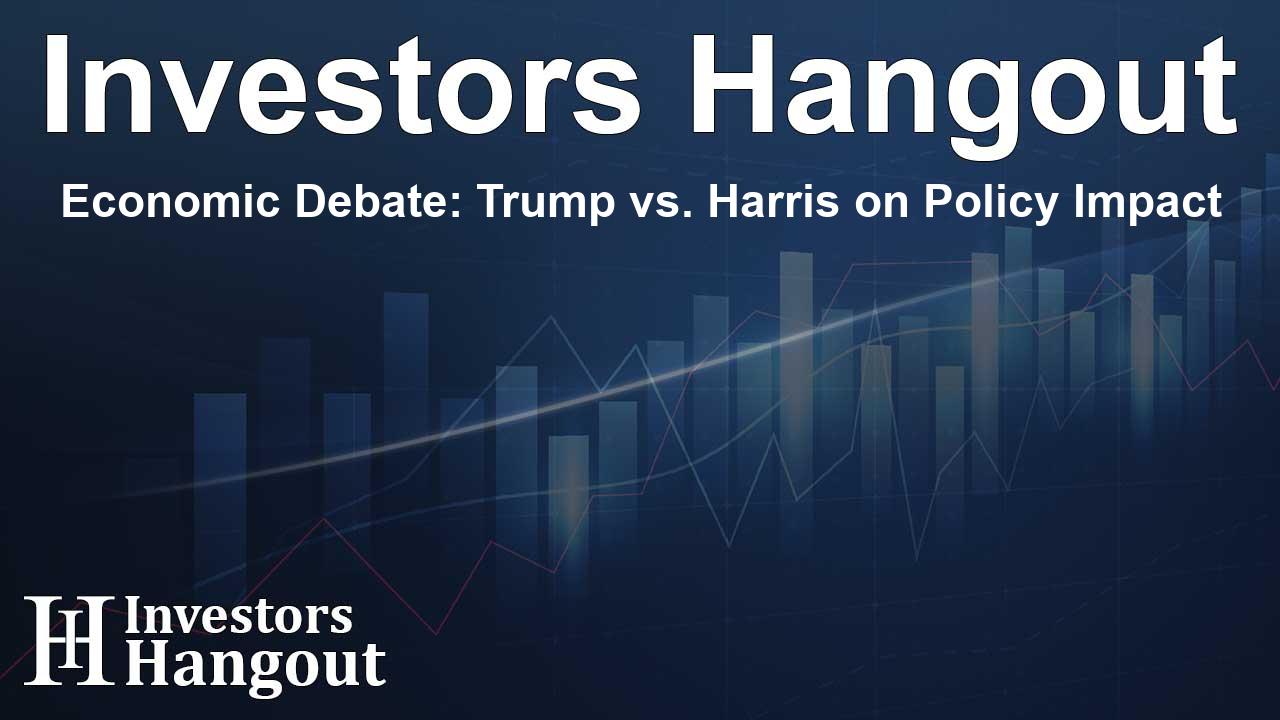Economic Debate: Trump vs. Harris on Policy Impact

Understanding the Economic Proposals of the Candidates
The 2024 presidential election is heating up, focusing attention on the economic strategies of candidates like Donald Trump and Kamala Harris. Economists increasingly lean towards Harris’s proposals, as they are considered less risky for the economy. This perspective comes from insights provided by Jason Furman, an economist from the Obama administration.
Trump's Economic Approach
Donald Trump’s economic strategies include controversial measures such as imposing a 10% tariff on all U.S. imports and an aggressive 60% tariff on goods from China. These proposals have raised numerous concerns among economists, including Furman, who views Trump’s tariff plans as a significant threat to the economy.
To contextualize, Trump's tariff plans would affect a staggering $4 trillion in imports, vastly surpassing the current tariffs that stand at $18 billion under President Joe Biden. The expansive nature of these proposals raises alarms regarding their potential economic fallout.
Harris’s Economic Policies
In contrast to Trump’s approach, Kamala Harris demonstrates a more measured strategy when it comes to tariffs. She proposes expanding the Child Tax Credit and extending tax cuts for individuals earning below $400,000. Harris aims to appeal to American families by promoting fiscal policies that are expected to support individuals and small businesses.
Deficit Implications
When analyzing the budgetary effects, Trump’s proposed economic strategies could inflate the deficit by more than $5 trillion, an alarming figure. Harris, on the other hand, would increase the deficit by an estimated $1.5 trillion, reflecting a comparatively restrained fiscal outlook.
Insights from Jason Furman
In his opinions, Furman recognizes Trump’s past tendencies to listen to knowledgeable advisors but remains skeptical. He emphasizes the importance of taking Trump’s stated policies seriously. “For my money,” Furman advises, “I recommend taking him at his word and voting accordingly.”
Educational Backgrounds
Both Trump and Harris hold notable educational credentials in economics. Trump obtained his Bachelor of Science degree in economics from the prestigious Wharton School at the University of Pennsylvania. Conversely, Harris graduated from Howard University with a degree encompassing political science and economics. Despite their similar academic backgrounds, their economic policies present a stark contrast.
Criticism of Tariff Proposals
Critics of Trump’s tariff proposals continue to emerge in the economic discourse. Furman, among others, has voiced questions regarding the rationale behind these strategies and their possible implications for international trade relations. There are legitimate concerns about retaliatory measures that could impact American goods' pricing and availability.
Campaign Messaging
Harris’s recent campaign ads emphasize her focus on the American people, contrasting sharply against Trump's policies, which allegedly favor corporate tax cuts. Her spokesperson articulated the election as a choice about who prioritizes the needs of ordinary Americans rather than big businesses.
Opposition to Harris's Plans
Nevertheless, Harris’s economic agenda has not gone unchallenged. Kevin Hassett, a former economist under Trump’s administration, has criticized her proposals, labeling them as “chilling” and commenting that they resemble communist principles. This pushback indicates the divisive nature of the economic issues surrounding the election.
Frequently Asked Questions
What are the main economic proposals from Donald Trump?
Trump has proposed tariffs on all U.S. imports and a significant tax increase on Chinese goods, which he claims will protect American jobs.
How does Kamala Harris's economic plan differ from Trump's?
Harris prioritizes expanding the Child Tax Credit and tax cuts for lower earners, aiming to support American families over large corporations.
What are the potential deficits from each candidate's policies?
Trump’s measures could inflate the deficit by over $5 trillion, while Harris’s proposals are projected to add around $1.5 trillion to the deficit.
Who supports Harris's economic proposals?
Economists like Jason Furman favor Harris’s strategies due to their perceived stability and reduced risks compared to Trump's aggressive approach.
What is the educational background of both candidates?
Trump holds a Bachelor of Science in economics from Wharton, while Harris graduated with a degree in political science and economics from Howard University.
About Investors Hangout
Investors Hangout is a leading online stock forum for financial discussion and learning, offering a wide range of free tools and resources. It draws in traders of all levels, who exchange market knowledge, investigate trading tactics, and keep an eye on industry developments in real time. Featuring financial articles, stock message boards, quotes, charts, company profiles, and live news updates. Through cooperative learning and a wealth of informational resources, it helps users from novices creating their first portfolios to experts honing their techniques. Join Investors Hangout today: https://investorshangout.com/
Disclaimer: The content of this article is solely for general informational purposes only; it does not represent legal, financial, or investment advice. Investors Hangout does not offer financial advice; the author is not a licensed financial advisor. Consult a qualified advisor before making any financial or investment decisions based on this article. The author's interpretation of publicly available data shapes the opinions presented here; as a result, they should not be taken as advice to purchase, sell, or hold any securities mentioned or any other investments. The author does not guarantee the accuracy, completeness, or timeliness of any material, providing it "as is." Information and market conditions may change; past performance is not indicative of future outcomes. If any of the material offered here is inaccurate, please contact us for corrections.